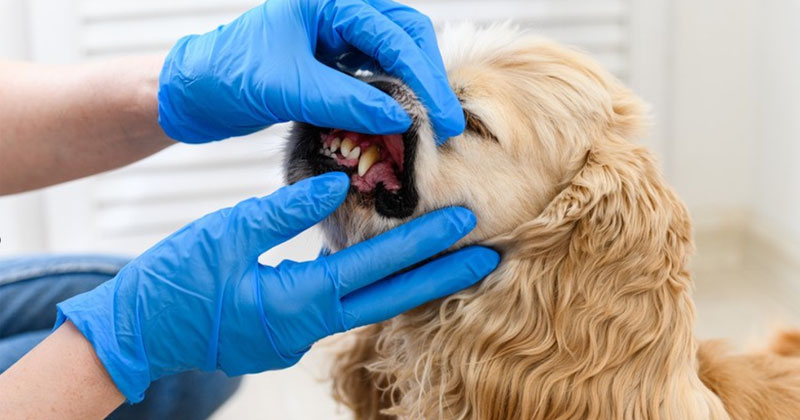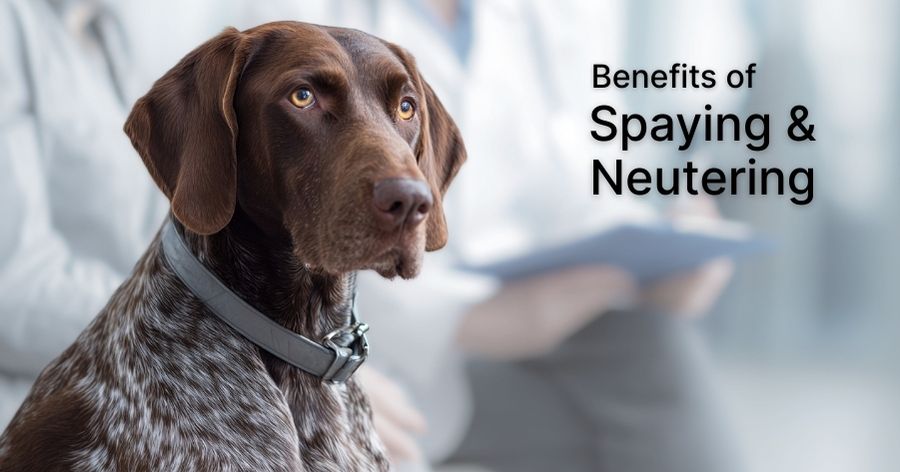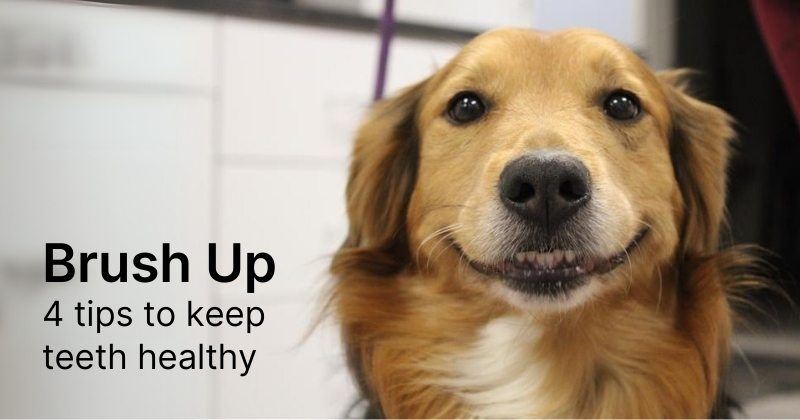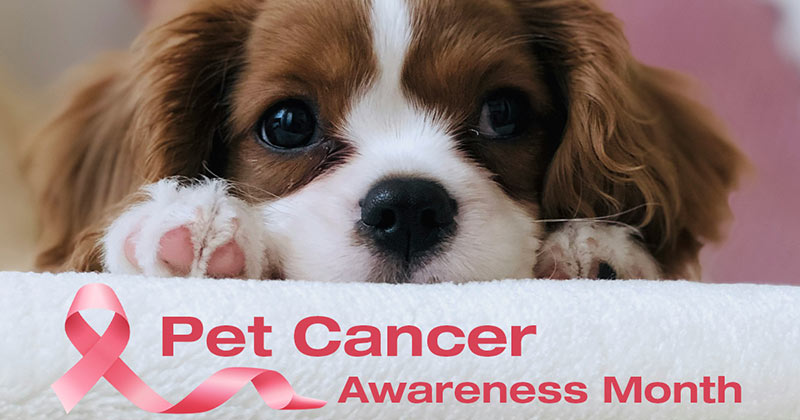
As a responsible pet owner, you likely pay close attention to your dog’s health. However, one area that’s often overlooked is oral hygiene, and you might find yourself wondering, “Why are my dog’s teeth brown?” This change in color can be alarming, but it's important to understand the possible causes. While discoloration can be a sign of dental issues, other factors can also contribute. If you’ve noticed your dog’s teeth turning brown, contact Ridgeview Animal Hospital at (402) 333-3366 or request an appointment to have your pet’s oral health assessed by our veterinary team.
Several factors can cause your dog’s teeth to become brown over time. It’s important to recognize that some issues might be less concerning than others, but many of them should still be addressed by a veterinarian. Here’s a closer look at some of the most common causes.
Plaque forms when food particles and bacteria combine, creating a sticky substance that adheres to your dog’s teeth. If plaque is not removed, it hardens into tartar, which can turn brown or yellow over time. Once tartar forms, it becomes difficult to remove without professional cleaning. Not only can tartar affect the appearance of your dog’s teeth, but it can also lead to gum disease and other oral health problems. Regular dental cleanings are essential to prevent this buildup.
When plaque and tartar are left untreated, they can cause inflammation and infection in the gums. Over time, this can lead to gingivitis and periodontitis, which are stages of dental disease. Periodontal disease, in particular, can cause your dog’s teeth to turn brown due to the infection that affects the supporting structures of the teeth. In severe cases, teeth may become loose or fall out, leading to discomfort and pain for your dog. Early detection is key to preventing serious issues.
While plaque and tartar are common causes, several other factors can contribute to your dog’s teeth turning brown. Let’s take a look at a few of these.
While you may be doing everything right, some dogs are simply more prone to dental issues due to genetics. Just like in humans, a dog’s genetic makeup can influence their susceptibility to oral health problems. Breeds such as small dogs, toy breeds, and brachycephalic breeds (those with shorter snouts) often have more crowded teeth, making it harder to maintain cleanliness.
Some breeds that are prone to dental issues include Chihuahuas, Dachshunds, and Shih Tzus. These smaller breeds often have misaligned or crowded teeth, which can trap food particles and make brushing more difficult. As a result, brown teeth and dental disease are more common in these breeds. If you own a breed that’s prone to dental problems, it’s especially important to stay on top of their oral care routine. Regular checkups and professional cleanings can help prevent serious issues from developing.
Prevention is always the best approach when it comes to maintaining your dog’s oral health. By implementing a few simple habits, you can keep your dog’s teeth cleaner and reduce the risk of brown discoloration.
Ideally, you should brush your dog’s teeth daily using a dog-specific toothbrush and toothpaste. While it may take time for your dog to get used to the routine, consistent brushing helps remove plaque before it can harden into tartar. If you’re unsure how to start brushing your dog’s teeth, your veterinarian can offer guidance. Over time, this habit can make a significant difference in the color and health of your dog’s teeth.
During a cleaning, your veterinarian can remove tartar and plaque that may have built up over time. This not only improves the appearance of your dog’s teeth but also helps prevent more serious dental issues. Veterinarians recommend scheduling a professional dental cleaning once a year for most dogs, although some breeds may require more frequent visits.
If your dog’s teeth are brown, it’s a good idea to schedule an appointment with your veterinarian at Ridgeview Animal Hospital. Brown teeth can indicate underlying dental problems that should be addressed before they worsen. Additionally, if you notice any of the following symptoms, it’s important to seek veterinary care: Bad breath Difficulty eating or chewing Drooling more than usual Swollen or bleeding gums Loose or missing teeth
Oral health is a critical component of your dog’s overall well-being. Poor dental hygiene doesn’t just affect your dog’s teeth and gums; it can also lead to more serious health issues such as heart disease, kidney problems, and infections that spread throughout the body. By providing proper oral hygiene at home and scheduling regular vet visits, you can protect your dog from preventable diseases and discomfort. If you’re concerned about your dog’s brown teeth or want to schedule a dental cleaning, contact Ridgeview Animal Hospital at (402) 333-3366 or request an appointment.


